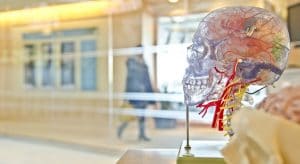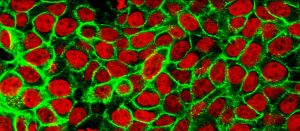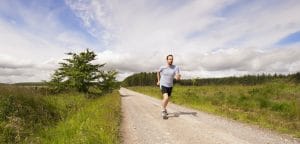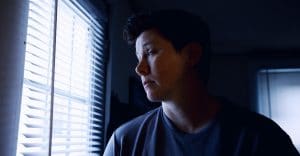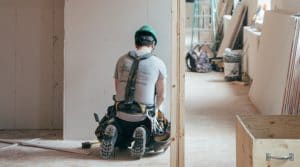If all we have to offer are platitudes and cures, we will be stuck forever trying to eat the elephant in the room, a possibility in theory, but rarely in practice. If we can understand and engage with our patient’s point of
The "Wise GP" website aims to provide a set of resources that can be used by GPs, GP trainees, medical students and the general public that show the complexity in general practice and some of what GP scholarship involves. It sounds like
Doctors and counsellors may have very different roles, but also a huge overlap of their relationship with their patients or clients. Dr Stuart Hannabuss, an honorary humanist university chaplain, talks us through some of the pitfalls and opportunities.
Clinicians and healthcare systems allow subtle forms of dehumanisation to enter clinical practice, so that people are treated as objects within the system. Judith Dawson appeal to us to watch our language!
Getting a place in medical school should be a matter of meritocracy. One’s socioeconomic background or personal connections should not affect it; there should be a level playing field. But how do we achieve this? Ishaq Miah, Farzeen Mahmood, Mahin Amir, Sagal
Telephone encounters may be more efficient and safer during the pandemic but but Judith Reeder argues that they are inferior to the interaction that occurs when you are able to share words and emotions face to face.
Ashley Liston, having been a GP for 34 years, chose to postpone his retirement to work in wave one of the pandemic. He tells about the lessons he has learned about working in new teams and his hopes for the future of
According to Euripides, "the sea washes away all men's illnesses". However Tadhg Crowley gives some less marine but more pragmatic advice as to how we can maintain our own mental wellbeing.
The COVID-19 outbreak has highlighted the detrimental effects of long-term loneliness. Niha Hussain gives us a useful mnemonic to help us to ask about support networks when taking a history, and continue to help us to direct patients to use a wider
Raising public awareness of Domestic Abuse (DA) is the first step forward in our battle to combat the detrimental health consequences of the abuse. Vasumathy Sivarajasingam offers some vital practical advice and excellent resource links to help us to identify and help
Spiritual health can be stigmatised, and doctors may be uncomfortable with the topic. Orla Whitehead discusses her own investigation into doctors' spiritual health in a time of Covid.
Richard Armitage reminds us that children may suffer lifelong effects from bullying, as a less visible complication of the current Covid pandemic.
A recent survey found that 72% of black and 42% of Pakistani and Bangladeshi people say they were unlikely to have the vaccine. Samar Razaq explores the reasons why.
John Brooks takes us to a little known Gaudi building, El Capricho in Comillas, northern Spain. But were Gaudi's amazing powers of observation and creativity partly a result of his childhood arthritis?
In Oncology clinics, during Covid-19, patients usually have only one person with them and may be asked to make treatment decisions in a few minutes, often in a corridor. Alistair Appleby makes the case for “enhanced consent” with time, counselling and additional
Once the urgency of Covid is over, let us remember our core skill as GPs - listening to our patients. Charles Todd reminds us that every patient encounter is unique.
During the COVID-19 pandemic in the UK was a dramatic reduction in both the number of Two Week Wait referrals being made by general practitioners, and the number of patients being diagnosed with and treated for cancer. The return now to baseline
We all want 2021 to be a better year! It's not too late to make a new year's resolution. Prithvi Dixit and David Salman help us to get into a better exercise regime.
We hope for better things in 2021. But not everyone in our society is so hopeful. Mo Stewart argues that austerity measures, added to social policy reforms, are leading to those in greatest need now living in fear.
The requirement by the MHRA that there should be a 15 minute wait following covid vaccination has led to a delays in the UK vaccination program. David Misselbrook questions the ethics of this decision.
2020 - what a year! I will be glad to be rid of it. Over the next few days BJGP Life will be looking forwards, not just to a better 2021 but also to a better world.
Why do we continue to examine GP trainees at 10 minutes when the RCGP itself has called for longer GP consultations? Greg Irving and colleagues question the status quo.
The BJGP gets in the mood for Christmas! We wish for a happy and peaceful Christmas to all our readers.
Jonathan Wells has had a busy and stressful year. He tells us how thinking differently about his time off has helped him to manage the stress of work.
It’s Christmas Eve and a disheartened Dr Scrooge has been considering resignation. But might his guardian angel, Clarence, be able to change his mind?
It's Christmas eve, and a dispirited Dr Scrooge is thinking of packing it all in. But might an unexpected visit change his perspective?
Nicholas Surridge brings us a case report about a remarkable case of vinyl-assisted Christmas psychotherapy.
BJGP Life is now able to reveal how the RCGP foiled a ghastly plot and saved the world in time for Christmas.
David Misselbrook previews a bumper week for BJGP readers.
Is the NHS a service that understands the female health burden and attempts to alleviate it? Judith Dawson investigates the evidence.
What do you do to help switch off after a busy clinical day? Read? Paint? Brick-lay? GP and post-CCT Fellow, Sophie Ingham, reveals her surprising discovery of D.I.Y as a therapeutic tool during the COVID-19 pandemic.
We doctors are pretty smart, yes? Chris Tiley identifies three critical areas of understanding that we need to get straight.
Missing the gymn or pool? Or just Covid enui? James Douglas challenges us to try wild swimming!
There is a growing research interest in doctor's "gut feeling" about diagnosis in consultations. But Covid has radically changed our consultations. Can our gut feelings catch up?
Marion Brown and Stevie Lewis urgently remind us to make sure we are not mistaking antidepressant adverse effects and/or withdrawal issues for medically unexplained symptoms, functional neurological disorders or chronic fatigue syndrome.
Isn't it great to know that with evidenced based practice we will always get it right? Charles Todd reminds us of a few home truths.
Should bereavement leave be a dependant on Employers' goodwill? Bert Leysen and Johan Wens survey the current situation in Europe and suggest a better way.
Anna Gordon reminds us that refugees are people like us, but in desperate need of our humanity.
Competing patient, family medicine and psychiatric perspectives complicate the management of distress and mental illness general practice and call for resolution. K. S. Jacob suggests some ways forward.
Some GPs seem invincible, gliding through their entire careers with a minimum of alarms. How do they do it? Retired GP, Ed Warren, muses on attitudes worth cultivating during a career as a GP.
During the current Covid-19 pandemic, operating procedures to deal with face-to-face consultations in primary care in the United Kingdom were clear in the need of separating services for patients with symptoms of Covid-19, and for shielded patients needing care. Pablo Millares Martin





